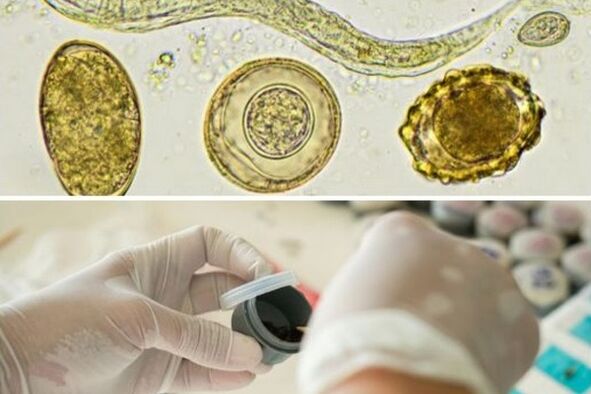
Parasites in the body exist together with trace elements and food in our intestines. There are many types of them. The most common are tapeworms, filariasis, trichophytosis and trichocephalus. From the abundance of parasite species, the symptoms with problems in humans also vary. For example, there are parasites that make us hungry when we eat the food we have eaten, others that cause anemia by eating blood cells, and others that lay eggs in the body, causing itching and insomnia. So, the most important thing in parasite treatment is finding the root cause (parasites) that is giving your body trouble.
Signs of the presence of parasites in the body
- the presence of constipation or diarrhea, which may be other signs of poor bowel function;
- while traveling in other countries, you have diarrhea;
- after food poisoning, your bowel function has changed;
- you have trouble sleeping, wake up frequently;
- have spots on the skin not related to allergies or other similar skin diseases;
- grinding teeth while sleeping;
- pain in the joints and muscles;
- feeling tired, depressed often, and cyclical lethargy;
- after eating you feel hungry, there is no saturation of the body;
- iron deficiency anemia.
As we can see, the symptoms are completely different, and some of them are attributed to another disease by people and may not even be thought of by a parasite.
How to identify parasites
First, pay attention to how you're feeling, what's causing the specific anxiety. If you have bowel problems, be it constipation or diarrhea, restless sleep, itchy skin, muscle pain, you should see your doctor. All the difficulties for the body in the presence of parasites are associated with their release of toxins, which affect the normal functioning of the human body. And disturbed sleep and creaking are signs of anxiety, when the body talks about the problem. Stool analysis remains the primary method for detecting parasites. Also, distinguish between standard analysis and detailed analysis, used in dysfunction medicine. Their main difference is in accuracy. Standard analysis can only identify the parasite if it is alive and active. Then, if the pest dies at the end of its life or is in hibernation, the standard method won't work. The result will be negative and you will be sure that you do not have harmful microorganisms, although this will not be the case. In a detailed analysis, there is no such problem, since it uses the polymerase chain reaction method. This method allows you to identify the parasite in any of its conditions and is independent of the laboratory assistant's ability to see the pest through a microscope. Thanks to this approach, patients who receive a negative standard analysis, after PCR, will be surprised to learn of unwanted "roommates", which then allows them to address the issue with their health. his health.
Treatments
The necessary treatment is prescribed by the doctor after receiving the test results. The process of prescribing medication depends on what parasites are found in you, because what will kill one pest will not affect another. However, in some cases where harmful microorganisms cannot be identified, the doctor prescribes a mixture of different herbs. Usually it is magnesia, tribulus extract, blueberry and grapefruit extracts, annual wormwood extract, walnut extract and bearberry extract. All of these ingredients are available in pharmacies. These blends work by creating beneficial bacteria in the gut, which is exactly what fights the bad bacteria for us. If you already have liver disease, or you have abused alcohol, check this point with your doctor, you probably shouldn't use the herbs, or you will need to reduce how often and how often you take them. . Remember, most parasites can be identified and eliminated. Pass the exam on time, follow all the instructions of your attending physician, and your health is guaranteed!























